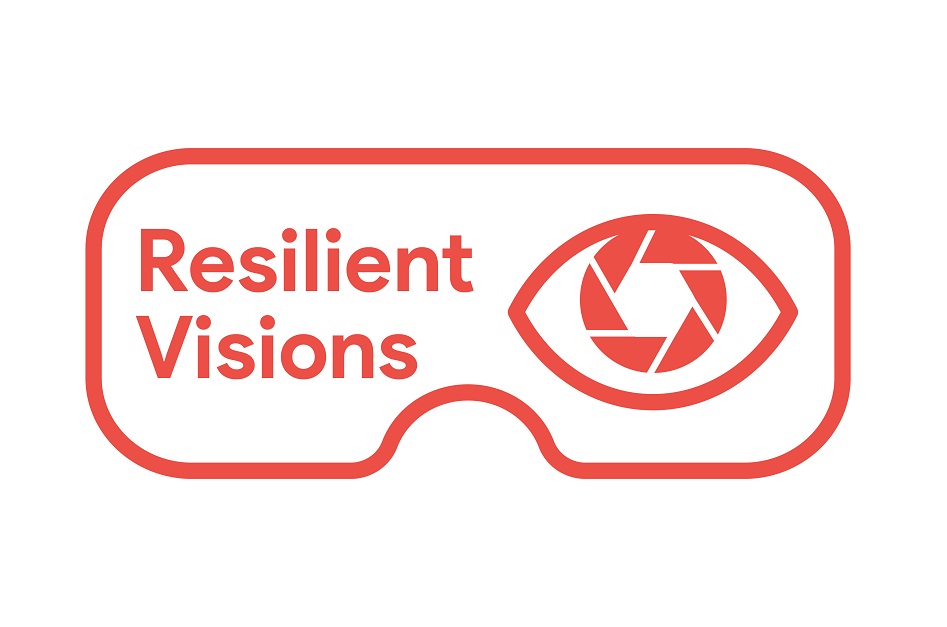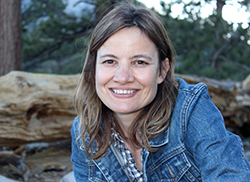
By N.L. Sweeney
During a time of social distancing, one of the best ways to bring people together is through the arts. That’s why UW Bothell students in Minda Martin’s Resilient Visions course are partnering with students from Jinan University in Guangzhou Province of China and Shi Hsin University in Taipei, Taiwan, to curate and produce the 2020 Resilient Visions film festival.
“This international collaboration is brand new for all of us,” said Martin, associate professor in UW Bothell’s School of Interdisciplinary Arts & Sciences. “The students and I are very excited to be a part of making this festival a reality and bringing together multiple cultures through film.”
In addition to going international, Resilient Visions is also going virtual. After receiving and judging the film, audio, 360 videos and photo submissions of students and alumni from UW Bothell and students from two partner universities, the event organizers are planning to stream the film fest on Northwest Film Forum’s website starting at 6 p.m. on June 10. The films will be followed by a Q&A session with the student programmers, judges and student filmmakers.
Culminating this “remote media festival” will be a number of awards for the best films — including the grand prize of $3,000. Judging for the awards are students from the class as well as Min Tang, a lecturer in IAS, and AATTV, the only 24/7 Asian television channel in Washington, which also is providing the prizes.
Learning behind the scenes
In the fall of 2018, Resilient Visions started with the support of Masahiro Sugano, an artist-in-residence in IAS, and Alka Kurian, a senior lecturer in IAS. Initially, it was going to be similar to the model Martin founded at California State University San Marcos, which was a student media festival led and run by faculty. But that idea shifted to follow the UW Bothell model set by other campus media — including Clamor, UWave and Husky Herald — which are faculty led and student run. Other people who were involved in the early stage included Susan Harewood, associate professor in IAS, who helped with the mission statement.
In spring 2019, Sam Yum, a lecturer in IAS, and the students in the Resilient Visions class launched the first Resilient Visions festival. The course is now in its second year. Students in each class first learn different models for organizing film festivals and then are challenged to produce the Resilient Visions festival on their own.
In the first half of this spring quarter, guest speakers joined the class via online teleconferencing to answer students’ questions and to share their experiences programming festivals. Film experts included Mike Plante, programmer of Sundance Film Festival; Dustin Kaspar, educational programs manager with the Seattle International Film Festival; Berenice Reynaud, curator and programmer of various international film festivals; and Rana San, artistic director of the Northwest Film Forum.
“I wanted a diversity of politics and practices for the programmers we chose to invite to the class,” said Martin. “My hope is that this breadth of scale would help students learn about the real-world experience of film programming.”
Hearing the guest speakers and being able to ask them questions, said Zuki Fu, a second-year student majoring in Culture, Literature & the Arts, was illuminating.
“We have a lot of hosts from different areas of film: directors, writers and professors,” said Fu. “And because of the small class size, we were able to have meaningful interaction with the speakers in a way that wouldn’t be possible in a larger classroom. I even got personal and professional advice for how I could apply for screenwriting at NYU. In this class, I feel like my opinions have value.”
Assuming leadership roles

While Martin leads the course, her role in the creation of the festival is as a guide.
“Resilient Visions is an opportunity for students to get hands-on, experiential learning in how to bring a large-scale event like a festival together,” she said. “Everyone coming together has been so rewarding to watch, and I am confident in the choices the students are making.”
In the second half of the course, students take on the various leadership roles that would be present in any other film festival, from soliciting submissions and curating the final selection of films to doing everything it takes to produce the festival event itself.
Devan Campbell, a Media & Communication Studies major who will graduate this spring, is filling the role of digital communications manager.
“My job is to manage social media, communications to AATTV and advertising for our event,” said Campbell. “This course is very student-driven. Minda asks us questions and points the way, but we, the students, are the ones putting this event together.”
Fu, who was born and raised in China, has taken on the position of communication programmer for the festival. In this role, she serves as liaison with Jinan University, provides cultural insights on films submitted by Chinese students, creates English subtitles for the Chinese films, writes comments about the selected films and edits much of the writing needed to produce and promote the event.
“We all have multiple roles to play, including watching the film submissions,” said Fu. “We do a little bit of everything.”
Chi L. Tran and Jody Delosreyes designed the website and logo
Finding community in film
When planning began in autumn 2019 for the second rendition of this course, Martin didn’t anticipate that Resilient Visions would take a virtual form. Then came the coronavirus pandemic.
“Many of the festivals that were scheduled are cancelling right now because they don’t want to or can’t go online,” said Martin. “But we felt it was important to bring people together to watch these films, even if that meant it was done remotely.”
After the films are streamed on the NWFF website, they will be made available through the student-created Resilient Visions website and through AATTV. The photographs, audio works, and 360 videos also will be made available at an art gallery in the future. “In a time swimming with more questions than answers, we’re poised to continue creating, connecting and collaborating across time and space,” said NWFF’s San. “While this festival was initially envisioned as an in-person experience, presenting it online opens up the possibility for anyone with internet access to tune in, including the featured filmmakers from China and Taiwan who otherwise could not have been in the room for a theatrical screening.”
It is also a timely moment for the filmmakers to share their voices and stories of resiliency.
“We see this as an opportunity for students at Jinan University, Shih Hsin University and UW Bothell to express their feelings in multiple ways and genres,” said Martin.
“When I was a student 30 years ago,” she said, “getting my first award in a film festival made me feel like I could continue on to do this. My hope is Resilient Visions encourages students to go on make more media work and feel connected with their peers in both local and international contexts.”
For many of the students in the UW Bothell course, Resilient Visions has been affirming both professionally and personally.
“My only regret is that I didn’t find out about this course until my last year,” said Campbell. “Speaking to programmers and organizing this event have ignited my passion, and this course has helped me feel like my passion can take me far.”



